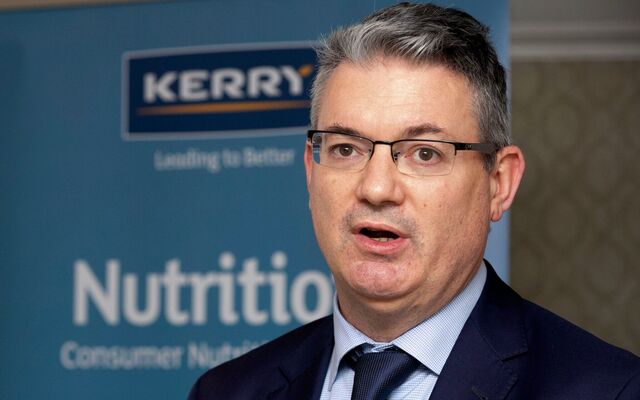The food and ingredients group saw sales increase 3.1% year-on-year while prices rose 0.2% in Q1.
The foodservice division recorded volume growth of 4.7% due to menu innovations, seasonal products, and solutions to reduce operational cost and complexity.
Kerry said that beverage, bakery and snacks end markets led growth for the quarter, though supported by savoury taste and Tastesense salt and sugar reduction technologies, as well as integrated solutions incorporating Kerry’s botanicals, natural extracts and enzymes.
Kerry also benefited from favourable transaction currency of 0.5%, favourable translation currency of 1.7%, and a 0.8% contribution from acquisitions net of disposals.
The group's continuing business EBITDA margin increased by 90 basis points, primarily driven by cost efficiencies, contribution from acquisitions, operating leverage and portfolio market.
In an interim management statement, Kerry said that end market conditions had reflected generally cautious consumer behaviour, citing uncertainty created by the US tariffs issue.
In terms of product innovation, the group said it had focused on new and differentiated flavour combinations and healthier options.
Product renovation was focused on product nutritional characteristics and solutions to address challenges in global raw material supply chains.
Read more
“We delivered a good overall performance in the first quarter, particularly given market conditions," said Edmond Scanlon, CEO of Kerry.
"We achieved good volume growth in the Americas and APMEA, with Europe similar to the prior year. Our strong EBITDA margin expansion was led by efficiencies delivered through Accelerate operational excellence."
Broken down by region, volume growth ranged from +5.1% in APMEA and +3.5% in the Americas to just +0.1% in Europe.
Kerry's performance was strongest in South-East Asia, the Middle East and Africa, but the group continued to struggle in China.
The company performed well in both North America and Latin America, specifically in the snacks and meal end markets in Brazil and Central America.
In Europe, growth in foodservice was led by quick service restaurants and coffee chains, while softer retail channel volumes reflected subdued demand.
At the end of March, Kerry's net debt stood at €1.9bn, reflecting cash generation, capital investment and the share buyback programme.
"Kerry’s consolidated balance sheet remains strong, which will facilitate the continued strategic development and growth of the business," the group said.
Kerry has also repurchased €185m worth of ordinary shares out of a planned €300m, and proposed a final dividend of 89c per share for approval at its AGM.
Looking ahead, Kerry said it was well-positioned to negotiate challenging macroeconomic conditions due to its extensive local footprint, global sourcing network, and customer-centric business model.
"While recognising a heightened level of market uncertainty, Kerry remains well positioned for good volume growth and strong margin expansion, as it supports its customers as an innovation and renovation partner.
"Kerry maintains its full year constant currency earnings per share guidance growth of 7% to 11%."
The group reported adjusted earnings per share of 467.5c last year.
*This article was originally published on BusinessPlus.ie.




Comments